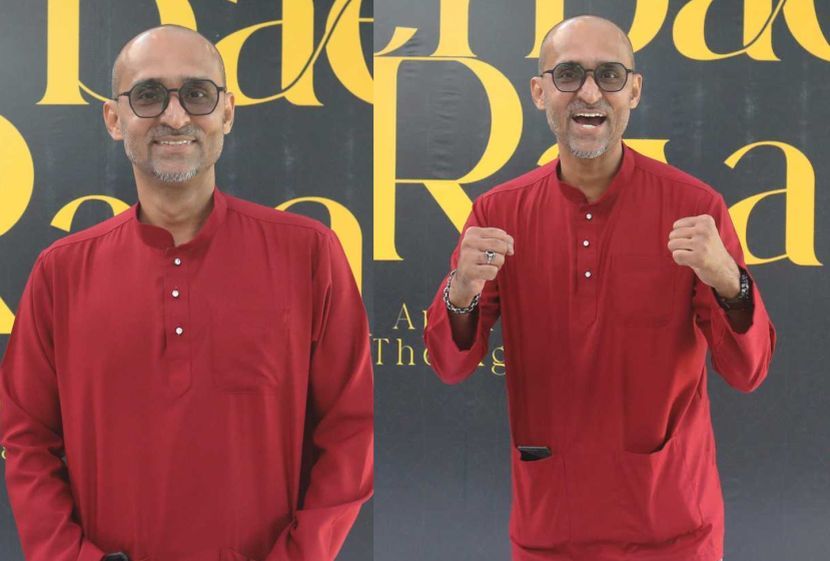Nothing has done more to cause loss of confidence in the system of justice than the way some superior court judges have allowed their racial and religious loyalties to override their duty to do justice according to the law.
AT A dinner with the nation’s legal luminaries on April 17, the Prime Minister promised a “comprehensive package of reform to strengthen the capacity and credibility of the judiciary”.
Ex-gratia payments were paid soon after that to judges who were dismissed or suspended as a result of the Tun Salleh episode.
Seven months later, the much-awaited Bill on the Judicial Appointments Commission is before the Cabinet for scrutiny.
While this is most welcome, one must remember that many other changes are needed to restore the dignity, independence and integrity of this most august institution.
One can think of at least 13 areas where the law and administrative practices need fresh perspectives.
Qualifications for appointment: Under Article 123 only two categories of law-trained persons with 10 or more years of experience are eligible for elevation to the superior courts.
These are: Members of the Bar and members of the judicial and legal service. Given the problem of quality at the bench, a more diversified judiciary should be created.
There should be a better mix of appointees from the judicial and legal service and private practice. It also appears unwise to bar distinguished academicians and legal officers in public corporations and statutory bodies from being considered for judicial appointments.
Appointment Commission: The present system of appointment of judges is that the Yang di-Pertuan Agong acts on the advice of the Prime Minister after consultation with the Conference of Rulers.
Before giving his advice, the PM is required to seek counsel from the Chief Justice and, in case of appointments to their courts, from the President of the Court of Appeal, the Chief Judges of the High Courts and the Chief Ministers of Sabah and Sarawak.
The system has not worked well due to factionalism within the judiciary. There is a need to inject procedural safeguards around the discretion of the Chief Justice (to recommend names to the PM) and of the PM to reject eminent nominees and to select names based on his own criterion.
In many democratic countries like the UK and New Zealand, an independent judicial nomination or appointment commission is charged with the task of vetting names and making recommendations. How far this process will lead to more distinguished people being appointed will depend on the representative character and integrity of the commission members.
We must remember that systems are as good as the people who administer them.
Under the Federal Constitution, there are at least nine commissions and special officers tasked with great constitutional functions. Not all of them have lived up to the trust re–posed in them. Judicial Commissio–ners: These are temporary judges appointed by the executive to tackle the backlog of cases. They do not enjoy the safeguards available to other superior court judges.
It is also notable that direct appointments to the High Court have become rare and a stint as a JC is regarded as a probationary period for a full appointment afterwards. This practice undermines judicial independence.
Judicial and Legal Service: When we think of judicial independence, we tend to think of the superior courts. This obsession with appeal courts is improper and has been humorously described as the professional disease of appeal-court-titis!
In fact, 80% of cases are disposed off in subordinate courts. The independence and competence of subordinate court judges is crucial to the proper administration of justice.
Regrettably, the existence of a combined judicial and legal service seriously breaches the doctrine of separation of powers because members of this service perform dual functions.
They are legal officers of the crown dependent on government patronage for promotion, transfer etc. They may also be sent to the courts as judges of the Sessions and Magistrates Courts.
Promotions: In the matter of promotion from the High Court to the Court of Appeal and to the Federal Court, there are no clear cut guiding principles.
Seniority and legal acumen do not count. The discretion of the CJ to make a recommendation appears paramount.
A performance evaluation programme should be implemented that objectively records the work of a judge and that permits government and private lawyers to evaluate justices on some transparent criteria.
Remuneration: The terms of service that are offered to judges must be adequate to enable them to live with dignity and to resist the temptation to curry favour with the executive or the private sector.
Rules relating to dismissal: The Tun Salleh episode shocked us into realisation that rules relating to suspension and dismissal of judges, while better than in many other countries, were full of loopholes and lacunas. We need to revisit Article 125 of the Constitution.
Article 121(1): Prior to the controversial amendment in 1988, Article 121(1) vested the “judicial power” of the federation in the courts.
This was understood to mean that the superior courts had an “inherent power” to be the final arbiter on questions of law, to enforce rights and duties and to stand between the citizen and the state.
Regrettably, the law now says that the High Courts “shall have such jurisdiction and powers as may be conferred by or under federal law”.
The exact implication of this change is open to debate but many believe that the amendment implies that there are no inherent powers any more. Courts should only do what is required of them by federal law.
If this is so, then the citizen is left helpless if, on an issue, there is no law on point; or if the government-controlled Parliament gives to the executive, as it often does, “absolute discretion”; or if there is an “ouster clause” excluding judicial review. We need to restore the previous Article 121(1).
Article 121(1A): The original intention of this constitutional amendment was to upgrade the status of syariah courts and to make them autonomous of the civil courts in matters of Islamic law. These aims were laudable.
What has happened, however, is that jurisdictional conflicts between civil and syariah courts have begun to plague the legal system and the civil courts have begun to play second fiddle.
Even if constitutional issues are at stake; even if one party is a non-Muslim; even if the remedy sought is not available in the religious courts, the civil courts are abdicating their constitutional function. In turn, syariah courts are reading their powers expansively.
Nothing has done more to fray inter-religious relationships and to cause loss of confidence in the system of justice than the way some of our superior court judges have allowed their racial and religious loyalties to override their duty to do justice according to the law.
It is time that the Government and parliament exhibited political courage to provide solutions to jurisdictional disputes.
Power to punish for contempt: Courts should have the power to punish for contempt any one, no matter how high and mighty, who subverts the administration of justice.
However, this power should not be taken so far as to prevent a lawyer from respectfully asking a judge to disqualify himself on the ground of bias or to punish a lawyer for questioning the conduct of the AG or his officers or to prevent the Bar Council from exposing judicial misbehaviour.
Truth and public interest should be a defence to a charge of contempt.
The law should be expanded to hold accountable senior judges who try to dictate verdicts to their subordinates. We have disturbing evidence of this misbehaviour.
Judicial corruption: An impeccable record of integrity is absolutely necessary. The law should come down heavily against judges who have cosy relationships with lawyers and corporate figures appearing before them as litigants.
Judicial immunity: In the performance of their judicial functions judges are entitled to full immunity. But this principle must not protect judges who act in bad faith or in callous disregard of their jurisdictional limitations.
Further education: Life is always larger than the law. The law can, therefore, never stand still. Legal education is a journey, not a destination.
The Bench, the Bar, the law faculties and the professions must team up to conduct periodic, formal courses in specialised fields to extend the shores of knowledge.
All in all, judicial reform requires a multi-dimensional approach. Amendments to the law will un–doubtedly help.
But whether the appointees have the character, the courage and the intellectual capacity to soar above the timberline of the ordinary and to transcend the pride, prejudice and temptation that afflict ordinary mortals cannot be guaranteed.

































